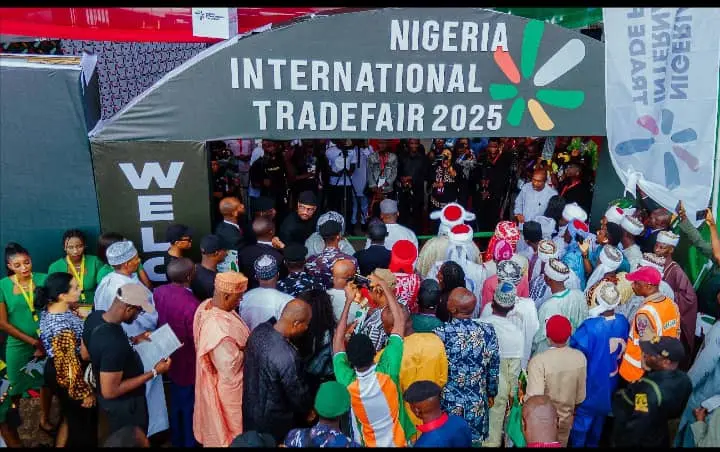The 2025 Nigeria International Trade Fair opened on Friday at the Lagos International Trade Fair Complex with renewed calls for stronger investment, industrial expansion, and consistent economic policy.
The event, organised by the Lagos International Trade Fair Complex Management Board (LITFCMB), brought together senior government officials, industry leaders, entrepreneurs, and exhibitors from across Nigeria.
In her opening remarks, Vera Safiya Ndanusa, Executive Director of LITFCMB, reaffirmed the Board’s statutory mandate to organise trade fairs nationwide and its renewed commitment to restoring the complex as a vibrant, nationally relevant hub for commerce.
She said the fairground is being repositioned to support enterprise growth, increase investment inflow, and expand sector-wide participation.
“Our goal is to create and sustain an environment where trade thrives, businesses can scale, and investment can flow freely,” she said. “A truly vibrant trade ecosystem must be inclusive—and inclusivity begins with access.”
The Minister of Industry, Trade and Investment, Dr. Jumoke Oduwole, underscored the fair’s significance, saying it remains a vital platform shaping the future of trade and business across the country.
“This Trade Fair and this physical space continue to influence Nigeria’s business trajectory, especially at a time when global uncertainty, ongoing economic reforms, and a rapidly evolving business climate demand resilience and partnership,” she said.
‘Technology, partnerships are enablers of trade integration’
Former Niger State Governor Mu’azu Babangida Aliyu described the Ministry of Industry, Trade and Investment as central to Nigeria’s economic recovery.
“Many people may not appreciate that this Ministry is one of the most important in the country—the foundation of our economy,” he said.
He stressed that revitalising the ministry would help reactivate dormant industries in Kaduna, Kano, and other industrial centres.
“If we take this ministry very seriously, I believe dead industries in Kaduna, in Kano, and other major areas will come back to life. Leadership requires vision, and vision provides room for goals and dreams.”
Aliyu also called for increased funding for the ministry, noting that investment must cut across all levels of enterprise.
“Investment is not only for the high class. Investment ranges from the smallest trader to the biggest.”
Minister of State for Industry John Owan Enoh, introduced as “a friend of commerce and a friend of industry,” praised the enduring relevance of the fair.
“For decades, this trade fair has stood as a symbol of Nigerian enterprise, creativity, resilience and our belief in what is possible.”
He described the exhibitors as the driving force of Nigeria’s economic future.
“I see a gathering of visionary minds—manufacturers, farmers, digital creators, investors, and small business owners. This is not just a marketplace; it is the engine room of our nation’s future.”


